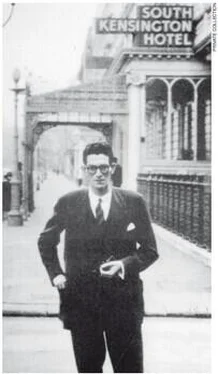Ben Macintyre - A Spy Among Friends
Здесь есть возможность читать онлайн «Ben Macintyre - A Spy Among Friends» весь текст электронной книги совершенно бесплатно (целиком полную версию без сокращений). В некоторых случаях можно слушать аудио, скачать через торрент в формате fb2 и присутствует краткое содержание. Год выпуска: 2014, ISBN: 2014, Издательство: Bloomsbury Publishing, Жанр: Старинная литература, на английском языке. Описание произведения, (предисловие) а так же отзывы посетителей доступны на портале библиотеки ЛибКат.
- Название:A Spy Among Friends
- Автор:
- Издательство:Bloomsbury Publishing
- Жанр:
- Год:2014
- ISBN:9781408851746
- Рейтинг книги:5 / 5. Голосов: 1
-
Избранное:Добавить в избранное
- Отзывы:
-
Ваша оценка:
- 100
- 1
- 2
- 3
- 4
- 5
A Spy Among Friends: краткое содержание, описание и аннотация
Предлагаем к чтению аннотацию, описание, краткое содержание или предисловие (зависит от того, что написал сам автор книги «A Spy Among Friends»). Если вы не нашли необходимую информацию о книге — напишите в комментариях, мы постараемся отыскать её.
A Spy Among Friends — читать онлайн бесплатно полную книгу (весь текст) целиком
Ниже представлен текст книги, разбитый по страницам. Система сохранения места последней прочитанной страницы, позволяет с удобством читать онлайн бесплатно книгу «A Spy Among Friends», без необходимости каждый раз заново искать на чём Вы остановились. Поставьте закладку, и сможете в любой момент перейти на страницу, на которой закончили чтение.
Интервал:
Закладка:
Hitler is said to have ‘exploded’ when told of Vermehren’s defection. For some time, he had suspected (rightly) that Admiral Wilhelm Canaris and many of his fellow Abwehr officers were less than fully loyal to the Nazi project, and secretly conspiring with the enemy. Here was proof. Hitler also believed (wrongly) that Vermehren had taken the Abwehr’s secret code books with him. Anyone who had aided, or even merely known the Vermehrens, was now under suspicion. Vermehren’s father, mother, sisters and brother were all rounded up and imprisoned in concentration camps. Hitler summoned Canaris for a ferocious dressing down, and told him the Abwehr was falling apart. With more bravery than tact, Canaris replied that this was ‘hardly surprising given that Germany was losing the war’. Two weeks later Hitler abolished the Abwehr, and created a new, over-arching intelligence service under Himmler’s Sicherheitsdienst. Canaris was shuffled into a meaningless job, placed under effective house arrest and finally, following the failure of the July Plot in 1944, executed. The Abwehr might have been corrupt, inefficient and partly disloyal, but it was, at least, a functioning worldwide intelligence service. The defections set off a chain reaction that destroyed it utterly, just three months before D-Day. In the words of the historian Michael Howard, German intelligence was ‘thrown into a state of confusion just at the moment when its efficient functioning was vital to the survival of the Third Reich’.
*
Nicholas Elliott was now the darling of MI6. An internal assessment concluded that he had handled the case with ‘consummate skill and sympathy, but with just the necessary touch of firmness’. Some of the glory rubbed off on Philby, who had helped orchestrate the defections from afar, and then debriefed the Vermehrens in his mother’s flat. The operation, it seemed, had ended in complete triumph. Elliott would ‘dine out’ on this success for a very long time, but the wining and dining began immediately, in celebration of Elliott’s ‘dazzling coup’.
It was through Philby that Elliott met the gaunt but convivial young American, James Jesus Angleton. The three intelligence officers became firm friends, and spent a good deal of time in each other’s company, from which Elliott emerged ‘formidably impressed both by Jim’s intellect and his personality, as well as by his enjoyment and capacity for food and drink’. Angleton had taken to wearing a Homburg, like Philby, and he peered out from underneath it through heavy-lidded eyes. ‘Beneath the rather sinister mystique was a very likeable man,’ Elliott recorded, ‘with a formidable personality and breadth of vision.’ Angleton and Elliott had much in common: fierce ambition, daunting fathers and, of course, a shared admiration for Kim Philby.
Before heading back to Istanbul, Elliott was summoned to MI6 headquarters by the head of security, a former soldier newly appointed to oversee vetting and secrecy procedures within the diplomatic service and MI6. This was an issue that had never been raised before with Elliott, who was almost pathologically discreet. ‘At that time, secrets were secrets,’ he wrote. But he now wondered if he had let his guard down in some way, or spilled some information to the wrong person. He need not have worried. The ensuing conversation, which he wrote down afterwards, said a great deal about the organisation of which Elliott was now a most valued part:
Security officer: ‘Sit down, I’d like to have a frank talk with you.’
Nicholas Elliott: ‘As you wish colonel.’
Officer: ‘Does your wife know what you do?’
Elliott: ‘Yes.’
Officer: ‘How did that come about?’
Elliott: ‘She was my secretary for two years and I think the penny must have dropped.’
Officer: ‘Quite so. What about your mother?’
Elliott: ‘She thinks I’m in something called SIS, which she believes stands for the Secret Intelligence Service.’
Officer: ‘Good God! How did she come to know that?’
Elliott: ‘A member of the War Cabinet told her at a cocktail party.’
Officer: ‘Then what about your father?’
Elliott: ‘He thinks I’m a spy.’
Officer: ‘Why should he think you’re a spy?’
Elliott: ‘Because the Chief told him in the bar at White’s.’
And that, once again, was that.
Elliott and Philby existed within the inner circle of Britain’s ruling class, where mutual trust was so absolute and unquestioned that there was no need for elaborate security precautions. They were all part of the same family. ‘For centuries the Office had operated on trust,’ said George Carey Foster, the Foreign Office security officer. ‘In that family atmosphere they couldn’t conceive that there was a wrong ’un among them.’ Elliott trusted his wife to keep a secret; Elliott’s employer trusted his father to keep a secret; and Elliott trusted his friend Philby to keep his secrets, never suspecting that those secrets were now being put to murderous use.
The information passed on by the Vermehrens included a detailed description ‘of all their contacts in the Catholic underground in Germany, and the role they could play in a post-war democratic and Christian Germany’. This was intelligence of the greatest value, since it listed the names, addresses and occupations of all those who, like the Vermehrens, opposed Hitler but wished to prevent a communist takeover of their country – the ‘leading Catholic activists who could be instrumental in the post-war period in helping the Allies establish an anti-communist government in Germany’. For obvious reasons, with the Red Army poised to march into Germany from the East, MI6 did not pass this list on to Moscow.
But Philby did.
After the war, Allied officers went in search of the anti-communist activists identified by the Vermehrens, people who ‘could have formed the backbone of a Conservative Christian post-war German political leadership’. They found none of them: ‘All had been deported or liquidated.’ The final months of the war were bloody and chaotic: Nazi loyalists killed some 5,000 people in the wake of the July Plot, including many in the Catholic resistance. It was not until years later that MI5 worked out what had really happened: Philby had passed the list to his Soviet controller, who had passed it to Moscow Centre, which had sent in the killers with a readymade shopping-list of influential ideological opponents to be eliminated as Stalin’s armies advanced. ‘Because Moscow had decided to eliminate all non-communist opposition in Germany,’ writes Phillip Knightley, ‘these Catholics had been shot.’
No one knows how many died as a consequence of Philby’s actions, because MI5 and MI6 have never released Vermehren’s list. In his diary, Liddell of MI5 noted reports that Soviet forces were liquidating opposition in East Germany in the ‘drive against the Catholic Church, which the Russians recognise as the most powerful international force in opposition to communism’. Years later, Philby observed: ‘I was responsible for the deaths of a considerable number of Germans.’ It was assumed he was referring to Nazis, but among his victims were also an unknown number of German anti-Nazis, who perished because they did not share Philby’s politics. Any lingering doubts Moscow may have had about Philby seem to have evaporated at this moment.
The Vermehrens believed they were alerting the Allies to the men and women who might save Germany from communism; unwittingly, they were handing them over to Moscow. Through Philby’s betrayal, Elliott’s greatest triumph was a secret, sordid tragedy.
See Notes on Chapter 6
7
The Soviet Defector
D-Day was approaching, the Allies were advancing and Kim Philby, Nick Elliott and their OSS colleague Jim Angleton, like so many others who had come of age in war, began to wonder what they would do with their lives when it was over. Each was determined to remain in the intelligence game, and make a career of it; each had found success in the arcane art of espionage, and all three were destined for rapid promotion, two through merit, and one by an office putsch.
Читать дальшеИнтервал:
Закладка:
Похожие книги на «A Spy Among Friends»
Представляем Вашему вниманию похожие книги на «A Spy Among Friends» списком для выбора. Мы отобрали схожую по названию и смыслу литературу в надежде предоставить читателям больше вариантов отыскать новые, интересные, ещё непрочитанные произведения.
Обсуждение, отзывы о книге «A Spy Among Friends» и просто собственные мнения читателей. Оставьте ваши комментарии, напишите, что Вы думаете о произведении, его смысле или главных героях. Укажите что конкретно понравилось, а что нет, и почему Вы так считаете.












